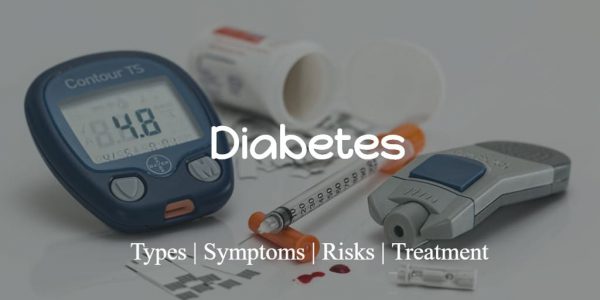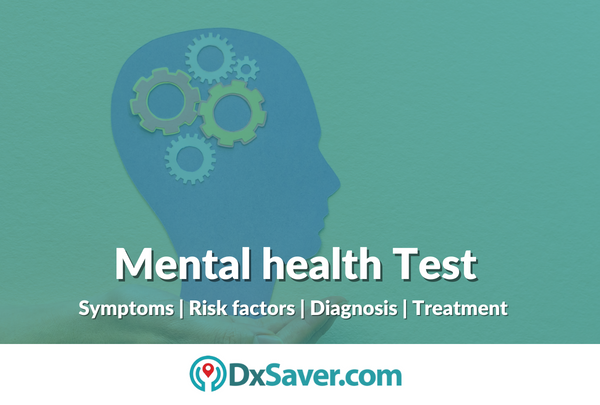
Do you feel emotionally vulnerable? Do you feel anxious? A mental health test will help you identify the factors that affect your mental health. Mental health tests are for quickly diagnosing and determining the appropriate type of treatment.
However, people who are open about their mental health or take mental health tests are often judged by others. Such stigmatization of people with mental health issues can discourage them from seeking help and hinder their recovery. To cope with changing emotions, you need to sit back, take a deep breath, and acknowledge that it’s okay if you are not okay.
Therefore, raising awareness about mental health and educating people about the symptoms and treatment of mental disorders is the need of the hour. In this blog, you will learn more about mental health, its importance, its diagnosis, and the need to test your mental health.
- What is mental health?
- Why is good mental health important?
- What are mental health disorders?
- What are the risk factors that lead to poor mental health?
- What are the signs of mental health disorders?
- How to diagnose mental disorders?
- Why is a mental vitality test important for diagnosis?
- How and when is the mental vitality test performed?
- What is the treatment recommended after the diagnosis?
For our readers, who are more interested in knowing the mental health test cost beforehand, we begin with that section.
How much does the mental health test cost?
A mental health test costs $229 in the U.S. The cost of a mental health test also depends on your choice of visiting the nearest lab or getting tested at home using the mental health home test kit. Complete the procedure and get the results in your email in 5 to 6 business days. Doctor consultation is also available for further treatment or any kind of medical advice.
The following table shows the mental health home test kit cost by one of our partners located in the U.S.
Name of our Partner Lab | Book Online |
EmpowerDx Lab(Home Test Kit)
| Offer Price$229 |
What is mental health?
Our psychological, emotional, and societal well-being are all parts of our mental health. Your mental health affects every period of life, from early childhood to adulthood. It impacts our thoughts, emotions, and behaviors. Additionally, it influences how we respond to stress, interact with others, and make health-conscious decisions.
When you have poor mental health, you will experience a changing pattern in behavior, emotions, or thought processes, you might be unable to control your emotions and feel severe distress. Each person’s experience of mental health is unique, differing in severity and suffering, and perhaps leading to rather diverse social and clinical consequences.
Why is good mental health important?
Good mental health helps you to behave constructively and also stabilizes your emotions. It enables you to adapt to life transitions and face challenges. Concentrating on mental health care can help improve your personality, enhance your productivity, and assist you in building healthy relationships with others.
Benefits of good mental health:
- Clarity in thoughts
- Greater tolerance to new, unusual, and challenging experiences.
- Decreases your worries
- Develops a stronger belief in one’s own tranquility
- Enhances our self-awareness
- Having a communal feeling
- Receiving comfort and support from others’ connections and support.
- Building relationships that are intimate and trustworthy, demonstrating empathy.
Maintaining good mental health not only enhances your ability to function normally, but it can also help to prevent various illnesses that are closely associated with mental health issues. Managing stress, for instance, may help decrease heart disease since stress and heart disease are linked.
What are mental health disorders?
A mental illness is a medical disorder that causes changes in emotions, cognition, or behavior that interfere with daily tasks such as social, professional, or personal responsibilities. It is a widely prevalent health condition. The National Institute of Mental Health (NIMH) forecasted that 52.9 million adult Americans suffered from mental disorders in 2020.
There are several distinct kinds of mental illness, often called mental disorders. So each kind of disease has its unique set of causes, signs, and treatments.
The following are some of the main categories of disorders:
Anxiety disorders
The most widespread psychological disorder, as stated by the Anxiety and Depression Association of America, is an anxiety disorder. Anxiety disorders are a family of interrelated illnesses, each of which displays symptoms differently.
A few examples of anxiety disorders are:
- Generalized Anxiety Disorder (GAD) – includes extreme fear or anxiety that interferes with daily life.
- Panic attack – A person could feel vulnerable and frightened among other extreme emotions.
- Disorder of social anxiety – A fear of getting judged by others. Individuals who have social anxiety frequently limit their interactions with other people at social events.
- Phobia – includes an excessive fear of particular objects, situations, or animals. A common example is the phobia of spiders.
Obsessive-compulsive disorder
You will have anxious thoughts and an obsession to carry out things repeatedly, like washing hands. Such obsessive thoughts can affect your daily tasks and interpersonal relationships. In the US, approximately 2.2 million Americans suffer from OCD.
Mood disorders
Mood disorders are also called affective disorders or depressive disorders. Individuals who have these diseases have extreme mood swings, which often involve either a phase of intense enthusiasm and delight or sorrow.
Examples of mood disorders are as follows:
- Bipolar disorder: People suffering from bipolar disorder go through unexpected fluctuations in their temperament, level of enthusiasm, degree of activity, and ability to go about their everyday lives.
- Severe depression: Those who have major depression have a persistently depressed mood and may suffer extreme or continuous despair.
- SAD (seasonal affective disorder): This kind of serious depression is brought on by reduced daylight during autumn, winter, and spring season.
Schizophrenia disorders
The word “schizophrenia” is frequently used to describe people who are detached from reality and exhibit serious psychotic symptoms such as hallucinations and delusions.
Schizophrenia symptoms frequently occur between the ages of 16 and 30, as reported by the NIMH. People might behave unusually and also experience cognitive impairments.
Sleep-Wake Disorders
Sleep disorders, commonly referred to as sleep-wake disorders, include abnormalities with the quantity, timing, and quality of sleep. Such disorders cause discomfort throughout the day and functional impairment. They frequently appear alongside medical conditions including anxiety, sadness, or cognitive difficulties.
There are various forms of sleep-wake disorders:
- Restless leg syndrome – A disorder marked by an overwhelming impulse to move one’s legs, usually at the night.
- Insomnia – Continuous difficulties with sleeping and remaining asleep.
- Narcolepsy – A chronic disorder that causes prolonged sleep conditions and impairs attentiveness during the day.
- Obstructive sleep apnea – A disorder that develops when muscles at the back of your throat become overly relaxed and results in periodic airflow obstruction while you’re sleeping.
Eating disorder
Eating disorders can result in the emergence of unhealthful eating patterns. So, mental disorders begin with an obsession over eating, weight gain, or body type. According to Harvard research, an estimated 28 million people in the United States suffer from an eating addiction right now or have had one in the past.
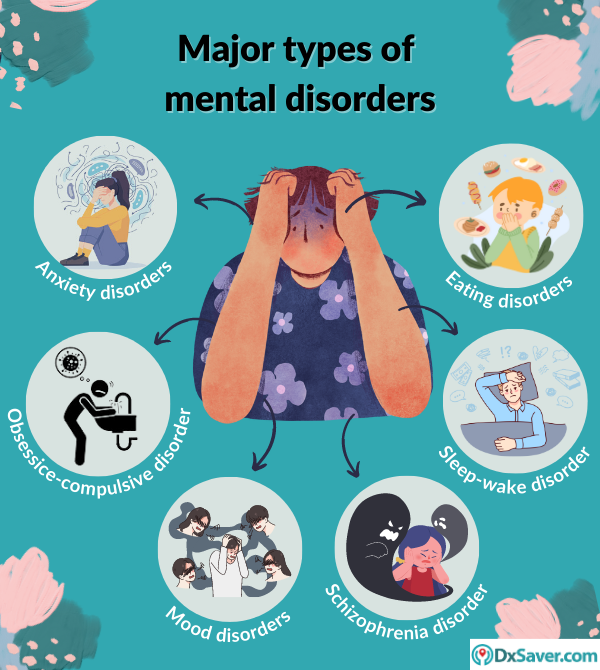
What are the risk factors that lead to poor mental health?
There are a set of factors that has an impact on mental health and the ability to handle life’s uncertainties.
The following list increases the increase the likelihood of suffering from mental illness:
Child torture
When a kid grows up, being physically abused, sexually abused, emotionally abused, or neglected increases the likelihood for them to suffer from mental illnesses like anxiety, depression, post-traumatic stress disorder, or personality problems.
Medical consequences that include diabetes, stroke, and other types of heart disease can result from child abuse or torture.
Family history of mental health issues
According to the NIMH, genetic family history and inherited genetic traits can put you at an increased risk of developing mental health issues.
Such gene variations lead to physical health problems such as diabetes and cancer and eventually cause mental disorders such as autism spectrum disorder, attention deficit hyperactivity disorder, depression, and anxiety.
Social and Economic pressure
Your family environment and financial situation can impact the mental health of a certain section of people.
The socioeconomic factors that increase the risk of suffering from a mental disorder are listed as follows:
- Unemployment
- Poor living conditions such as unsanitary living conditions
- Low salary
- Problems related to substantial debt
- Unhealthy family dynamics
- Death of a loved one
- Separation of parents
Lifestyle
Your way of life can influence your mental health. The following actions have been associated with depression and may be harmful to one’s mental health:
- Unhealthy food choices
- Excessive consumption alcohol
- Smoking
- Unsafe sexual conduct
- Usage of drugs
Hormonal changes
Another potential reason that increases your risk of suffering from mental health problems is hormonal changes. When your hormone levels fluctuate, your chance of developing depression increases. Sudden hormonal fluctuations severely impact your mental health condition and lead to mental disorders.
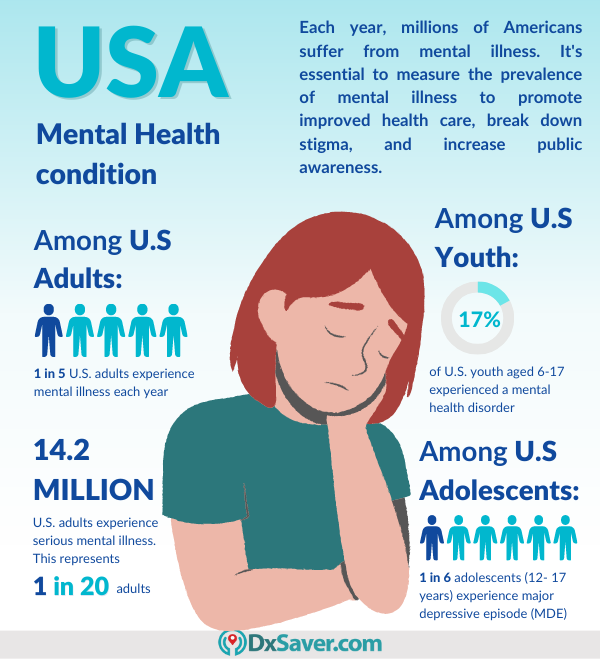
What are the signs of mental health disorders?
No medical examination or scan can effectively tell if you have a mental disorder.
Hence, people should be aware of the following common signs of a mental illness that can affect their well-being:
- Extreme anger
- Grieving for a long time
- Self-harm thoughts
- Severe fatigue
- Delusional thoughts
- Hear noises
- Drastic mood changes
- Becoming more distant from family and friends
- Neglecting favorite hobbies
- Feeling confused, regretful, or anxious without any apparent cause
- Drastic changes in sleep patterns like either oversleeping or not enough sleep
- A major shift in eating patterns, such as undereating or overeating
- Excess consumption of alcohol
- Abnormal usage of drugs and cigarettes
- Being incapable of performing routine duties, like heading to work or cooking a meal
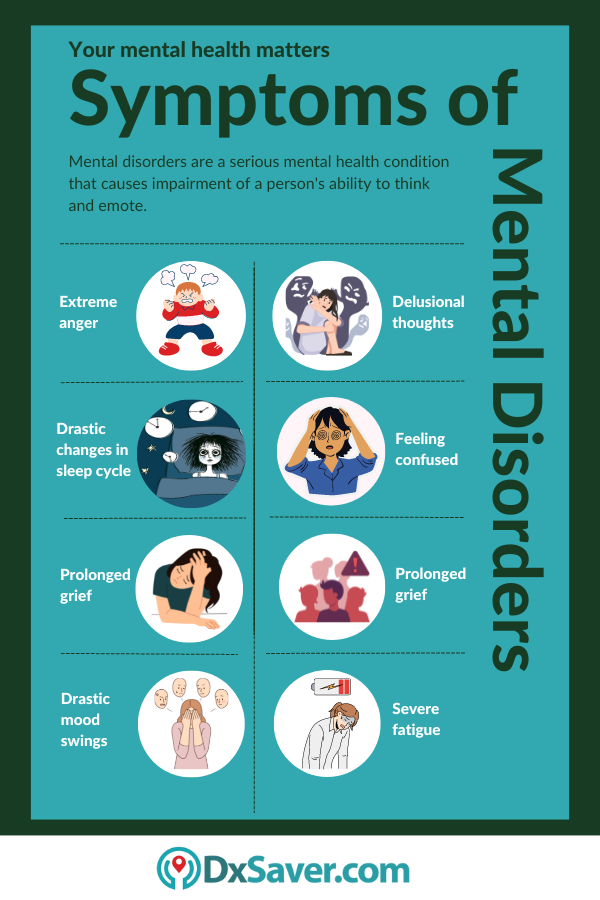
How to diagnose mental disorders?
Several steps are taken to establish a diagnosis and look for associated complications. The steps are listed as follows:
Medical examination: A doctor starts by reviewing a patient’s medical history and doing a complete physical examination to check for physical problems that could be triggering the symptoms.
A psychological assessment: Your symptoms, thoughts, emotions, and behavioral tendencies are discussed with a medical or mental health expert. You might be asked to fill out a questionnaire to help in answering these questions.
Lab tests: To check for alcohol presence and other potential underlying symptoms, doctors may ask you to take several laboratory tests, such as diagnostic imaging and blood testing. An example of a blood test is a mental vitality at-home test by empowerDX. Doctors highly recommend such mental health test kits because they identify the influence of your hormones on your mental health.
Determining mental illness: Medical professionals use the Diagnostic and Statistical Manual of Mental Disorders (DSM-5) published by the American Psychiatric Association (APA) to determine the type of disorder and provide a comprehensive understanding for an appropriate diagnosis.
Why is a mental health test important for diagnosis?
Mental health tests are essential for mental health diagnosis because the test helps you get insight into your mental vitality. The test identifies areas where your general well-being, mood, and mental health might be improved. The test is for patients aged 18 and above.
Mental health test checks for 11 crucial indicators that may have an impact on your mental health. The indicators are listed as follows:
- Vitamin B12
- Vitamin D
- Progesterone
- Estradiol
- Total testosterone
- MTHFR gene
- DHEA-S (Sulfate of dehydroepiandrosterone)
- Free T4
- Free T3
- TSH (Thyroid-Stimulating Hormone)
- TPO (Thyroid Peroxidase)
All the indicators mentioned above are critical for improving mental health conditions because these indicators, which include hormones, antibodies, and nutrients, are associated with symptoms such as depression, memory loss, change in sleep patterns, fatigue, and even damage to nerves.
How and when is the mental health test performed?
Mental health tests can be done at home using test kits. You can take this test when you experience symptoms of poor mental health such as low energy levels, cognitive decline, extreme changes in mood, anxiety, poor sleeping patterns, and most importantly when you have a family history of mental disorders.
The test kits collect blood and saliva samples using a finger prick method and a simple mouth swab collection method. It is recommended to avoid biotin supplements for three days prior to the test.
The collected samples help determine the presence of nutrients, vitamins, gene types, and antibodies and how they influence your mental health condition. When the lab receives your sample, you will receive your CLIA-certified lab results from a secure portal in 5-6 days along with a test guide that has been approved by a doctor.
What is the treatment recommended after mental health test?
The optimal course of therapy for you will vary based on the nature and degree of the mental disorder you have. A mix of treatments is frequently the most effective.
The methods for treating mental illness are listed as follows:
Psychotherapy:
Talking to a mental health expert about your illness and any associated problems is known as psychotherapy, also known as talk therapy. Therapy helps you to begin to develop healthier patterns of thought that will support daily life and decrease the possibility of depression and self-harm.
While selecting a therapist, you should feel at ease with them and have faith in their ability because they have to hear and understand what you have to say.
Medication:
Certain psychiatric medications help you to focus on your mental health and decrease the symptoms of mental problems, though they can’t treat them. It also supports you in resuming your regular lifestyle and social engagements. Some examples of prescribed medications include antidepressants, mood-stabilizing medication, antipsychotics, and anti-anxiety pills.
Self-help:
To manage your mental health condition, you should be involved in your care. You should discuss this with your medical professional and decide what to do based on your symptoms. You will be required to alter your lifestyle to promote your well-being.
Reducing alcohol consumption, daily exercise, getting enough sleep, and eating a healthy, balanced diet are steps offered by NIH as lifestyle adjustments. Individuals may need to take time off to sort out work-related stress or personal problems that affect their mental health. Methods such as meditation, self-awareness, and breathing exercises help to relax and reduce depression.
A support system, whether it be through self-help organizations or close friends and family, can be crucial for recovering from mental illness.
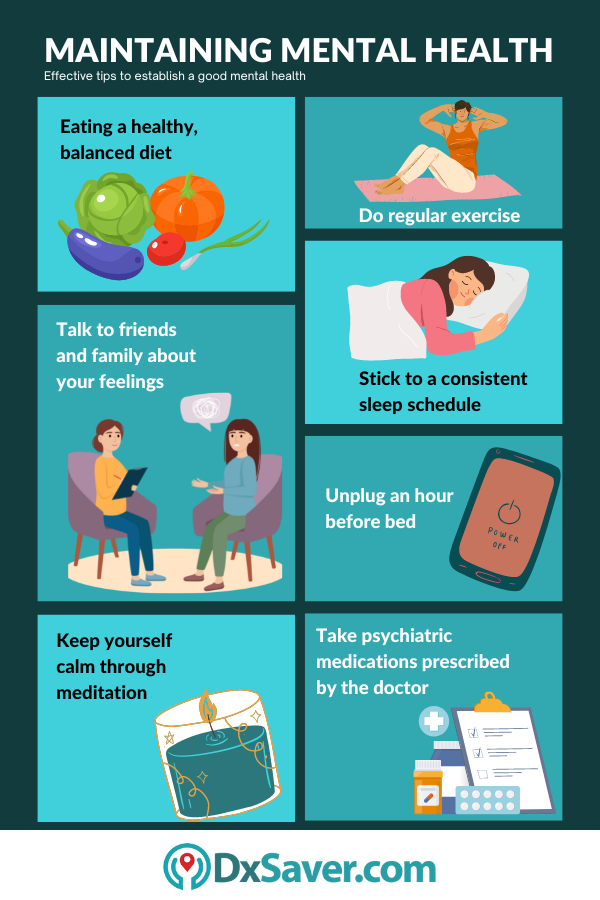
Providers location
A Mental Health test can be done at any of your nearby labs or with our partner who sends the at-home test kit to your doorstep. To know the cost of a Mental Health at-home test kit, refer to the first section of the article.
Frequently asked questions (FAQs):
Can your psychological well-being change as time passes?
A: It is crucial to keep in mind that your mental health can shift over time. Your mental health depends on various circumstances because it is affected when your socioeconomic pressures exceed your coping abilities. Poor mental health may result from financial difficulties or long working hours.
How can I take better care of my personal well-being?
A: There are various strategies to look after your mental health, such as obtaining sufficient sleep, eating an appropriate diet, exercising regularly, controlling your stress levels, engaging in mindfulness or meditation, forming relationships with other people, and receiving professional assistance when necessary.
How can I prevent mental disorders?
A: Discussions with family, counseling, medicine, friendships, regular exercise, a healthy diet, getting enough sleep, and a fulfilling job can all help you to prevent the risk of mental disorders.
Will a biotin supplement alter the findings of mental vitality tests?
A: You should avoid consuming biotin supplements for three days before sample collection for the test because taking a supplement that contains biotin (vitamin B7) can affect your test findings.
Other topics that you may be interested in:-
- How much is the Vitamin B12 test cost in the U.S.?
- Causes of heart diseases
- What is the cost of a Vitamin D blood test in the U.S.?
- Nutrient deficiency, its symptoms & treatment
- How is a metabolism test done?
- What is the purpose and procedure for a wellness test?
- Importance of vitamins and the need for essential vitamin test
- Importance of normal ACTH levels
- How much is the parathyroid hormone cost in the U.S.?
- Treatment of tapeworm infection
- Test cost for Magnesium Blood Test in the U.S.
- How to order an at-home Gonorrhea test kit?
- The purpose of an IgE Allergy test
- Causes for Stinging Insect Allergy
- How to order an at-home Herpes test kit?
- What is the purpose of a wellness checkup?






